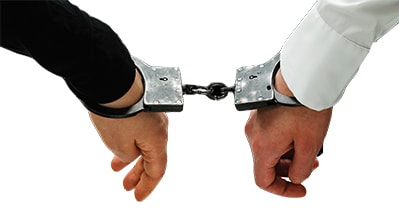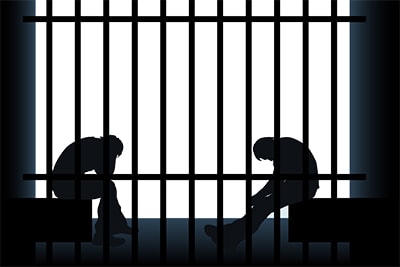The Curious Case of Accomplice
“A good friend will help you move, but a true friend will help you move a body.”
~Steven J. Daniels
The Jigsaw of Accomplice Liability
 Towards the end of 2017, the UAE public was made aware that there had been a massive syndicate organizing trading scams in the region which were reported to have removed nearly one billion dirhams from the market. Three main perpetrators organized the syndicate, which supposedly spanned over numerous year. However, the business implicated many people who had helped in the commission of the various offenses. In one of the crimes, these main perpetrators had flown in 35 people whom they sent into the market as purchase officers. These people brought products of every type and description against post-paid cheques which eventually bounced. The goods were then sold at unreasonably low prices to third parties for cash. The people are then flown out of the country before their perpetration comes to light.
Towards the end of 2017, the UAE public was made aware that there had been a massive syndicate organizing trading scams in the region which were reported to have removed nearly one billion dirhams from the market. Three main perpetrators organized the syndicate, which supposedly spanned over numerous year. However, the business implicated many people who had helped in the commission of the various offenses. In one of the crimes, these main perpetrators had flown in 35 people whom they sent into the market as purchase officers. These people brought products of every type and description against post-paid cheques which eventually bounced. The goods were then sold at unreasonably low prices to third parties for cash. The people are then flown out of the country before their perpetration comes to light.
In the view of this article, the question we are going to look at is what the criminal accountability of the people is who merely aided in the commission of the crime but were not the masterminds behind it. These people known as criminal accomplices can play many different roles; these roles also vary in criminal accountability as well as criminal intent. Those involved in the commission of a crime can divide into the following categories. The actual perpetrator of a crime; a party who helps the real perpetrator in the committing of a crime and who is there at the time and place that the offense is committed. Also, a party who assists or encourages the actual perpetrator to commit a crime, but who is not present at the time and place that the offense is engaged, and a party who has the knowledge that a crime has been committed and who, nevertheless, helps the offender to escape detection, capture or punishment.
The Dilemma under UAE Law
An accomplice is a person who qualifies to have the required mens rea and assists or aids the principal in committing the crime. Nevertheless, he/she is the one who accosts the offense by commanding the principal to perpetuate the crime; provides an incentive for committing the felony; encourages or instigates the principal to execute the offense; aids in arranging the instruments for the commencement of the crime; watch the happening of an event where he/she has the legal duty to make an effort or prevent such crime.
Federal Law Number 3 of 1987 concerning the promulgation of UAE Penal Code hereinafter referred to as the Law or the Penal Code, specifically provides the regulation of criminal conspiracy under chapter three. Article 44 of the Penal Code provides that where a person performs a crime or acts as a direct accomplice such person will be considered to be the perpetrator of the crime. In the determination of whether an accomplice is a direct one, this Article provides the following clarifications:
A person will be a direct accomplice if:
- He perpetrates the crime with another person;
- He participates in the perpetration when such perpetration consists of several acts, and he deliberately commits one of its constituent acts; or
- He sub-serves another person by any means to execute the criminal action, and the latter is not criminally responsible for this act for any reason whatsoever.
 The law goes further to provide the requirements for a person to be considered an accomplice by causation in Article 45 of the Penal Code. This Article provides that a person will be an accomplice by causation should a crime that they instigated, be perpetrated as a result of their instigation. If he conspires with others to commit a crime that occurred as a result of this conspiracy, or if he gives the doer a weapon, tool or anything else used in the perpetration of the crime of which he knows. Finally, if he wilfully assists the perpetrator, by any other means, in the preparatory acts or those facilitating or completing the perpetration of the crime.
The law goes further to provide the requirements for a person to be considered an accomplice by causation in Article 45 of the Penal Code. This Article provides that a person will be an accomplice by causation should a crime that they instigated, be perpetrated as a result of their instigation. If he conspires with others to commit a crime that occurred as a result of this conspiracy, or if he gives the doer a weapon, tool or anything else used in the perpetration of the crime of which he knows. Finally, if he wilfully assists the perpetrator, by any other means, in the preparatory acts or those facilitating or completing the perpetration of the crime.
Holding such an accomplice liable in equal proportions whether he was in direct contact with the perpetrator or through an intermediary shall occur.
The law differentiates between persons found at the scene of the crime and whether the person accused was there with the necessary intention. In accordance with Article 46 of the Penal Code, an accomplice by causation who, located at the scene of the crime and who has the required plan to commit such offense is a direct accomplice for the trial in case any other person does not determine the assault besides him.
The law does not provide for a difference in penalty between a director causative accomplice, and it states that where a person perpetrates a crime in either role, he/she will be sanctioned per the sanction as provided for by the law. However, not all accomplices will receive a penalty as per the law; Article 48 provides for an exception to this provision. This Article provides that where there shall be no penalty in the cases that there are causes of legitimacy or if there is a lack of criminal intention an accomplice will not receive to the same sentence as the other perpetrators. It goes further to state that where such accomplice lacks such plan or where there are causes of legitimacy, this does not have any bearing on the accountability of any other perpetrators of the crime at hand.
In My Defence
Chapter 4 of the Penal Code provides for the causes of legitimacy, those relevant here can be the right of legitimacy in the performance of duty and lawful self-defense. The law states that there is no crime in the case that the action occurs as per a commitment by the Shari’a or the law should the person acting be legally authorized to do it.
It goes further to states that there is no crime if the act is committed by a public employee or a person entrusted with public service in the following circumstances:
- If the action is perpetrated in the execution of an order where such order has been issued to the perpetrator by a superior legally authorized to issue such order and who the perpetrator had to obey;
- Should the performance of the activities occur in good faith and the execution of a lawful order.
Concerning the right of self-defense, there is no crime where the act performed is in the exercise of self-defense, under the following circumstances:
- If the defender faces an immediate danger from an offense on his person, his property, or the person or property of another or if he believed in the existence of such threat and his fear of such danger is based on reasonable grounds;
- The defender cannot resort to public authorities to avoid the adverse outcome in due course;
- The defender has no other means to repel the threat; and
- The defense is necessary to resist the threat.
In the commission of a crime, the acts of any of the perpetrators can encompass all of the persons committing such crime, whether they are the direct, or causative accomplices. Where the material circumstances which are inherent to a crime or are constituent of one of its acts, and such circumstances will aggravate or mitigate the penalty. The effects of such aggravation or extenuation of punishment will apply to anyone directly or causatively participating in the perpetration of the crime regardless of whether such a perpetrator had the knowledge or the aggravating or extenuating circumstances; this is in pursuance of Article 49 of the Law. However, where the aggravating or mitigating circumstances are personal circumstances of only one of the accused, such events will not apply to any of the other persons unless the other person knew such. This concept applies also concerning sentencing, and any personal excuses exempting from, or mitigating the sentence of any one of the accomplices, whether direct or by causation, will affect only that accomplice.
 Where a person had the intention to commit a particular crime but ultimately become an accomplice either directly or by causation, in the commission of another crime, such person will receive sanction by the penalty appertaining to the crime committed as long as the committed crime is a probable consequence of the occurring complicity.
Where a person had the intention to commit a particular crime but ultimately become an accomplice either directly or by causation, in the commission of another crime, such person will receive sanction by the penalty appertaining to the crime committed as long as the committed crime is a probable consequence of the occurring complicity.
The International Law of Accomplice Liability for Human Rights Crimes
Consideration as to the role and accountability of an accomplice on an international scale is required. William Schabas, utilizing authorities from the Nuremberg Trials to the present-day statute of the International Criminal Court, provides the following elements for the successful establishment of the guilt of an accomplice:
- In the case a war crime or crime against humanity has been committed;
- The individual charged as an accomplice contributed in “a material way to the crime”; and
- The individual accused as an accomplice intended that the crime is committed or have been reckless as to its commission.
Schabas draw an example in terms of the Mauthausen Concentration Camp, here it was held that every official (government, military and civil) including every employee of the camp (whether S.S. member, guard or civilian) was criminally accountable as an accomplice to the murder of inmates at the concentration camp through the use of gas chambers. When the question of the liability of the individuals, the reason given was the impossibility that any of the individuals abovementioned could not have "acquired a definite knowledge" about activities at the camp.
 English
English
 عربي
عربي Русский
Русский 官话
官话 português
português
 Türk
Türk 



